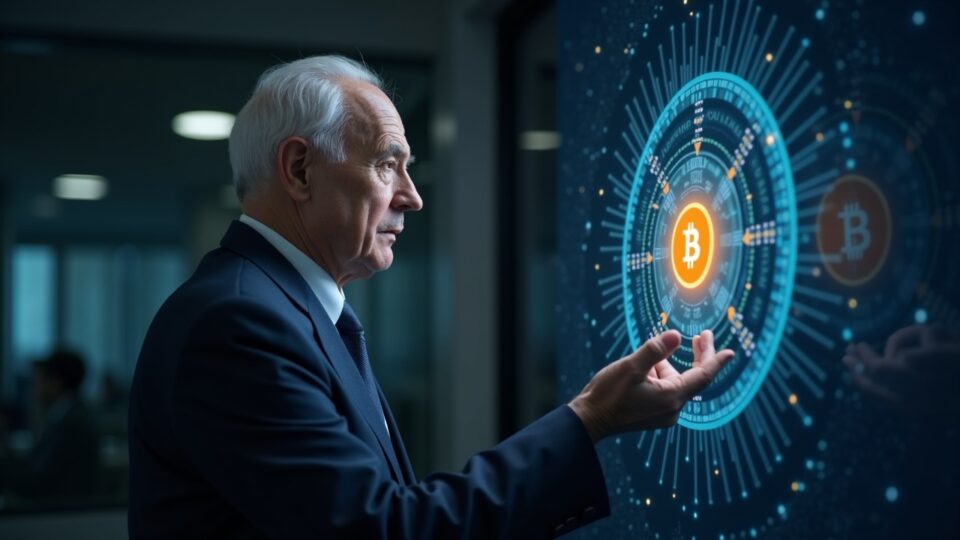The billionaire founder of Bridgewater Associates has recently clarified Ray Dalio’s opinion on Bitcoin and his current market positioning. During an interview granted to CNBC this Thursday, the mogul confirmed that he keeps approximately 1% of his personal portfolio invested in the leading cryptocurrency, an allocation he has held for a “long time” as part of his asset diversification strategy.
However, Dalio was skeptical about the asset’s potential to become a viable global reserve currency in the short term. He argued that the transactional transparency of the public ledger represents an insurmountable obstacle for governments requiring sovereign financial privacy. Furthermore, he noted that the inherent traceability of the blockchain allows for excessive monitoring that world powers will likely not accept for their central operations.
One of the most alarming points of his analysis focused on future technological advancements and their impact on cryptographic security. The investor warned that the accelerated development of quantum computing could compromise the network, theoretically allowing malicious or state actors to hack or control the system. Therefore, these security and privacy risks severely limit, in his view, the asset’s mass adoption as an international monetary standard.
In contrast to his cautious stance on cryptocurrencies, Dalio reiterated his historical preference for gold as a superior safe haven asset. Recently, he urged investors to allocate 15% of their portfolios to a mix of gold and Bitcoin, leaning heavily towards the precious metal. He highlighted that gold is a physical asset one owns directly, eliminating counterparty risk and dependence on third parties for its provision or validation.
US economic bubble alert
Beyond digital assets, the fund manager issued a severe warning regarding the current macroeconomic health of the United States. He explained that, according to his proprietary indicator tracking data since 1900, the US economy is 80% of the way toward a bubble, comparable to the periods preceding the 1929 crash and the dot-com crisis of the year 2000.
This metric evaluates critical factors such as excessive leverage, money supply, and wealth concentration to determine systemic vulnerability. Dalio emphasized that “the picture is pretty clear,” suggesting we are in dangerous territory. Thus, his allocation to Bitcoin seems to function more as a small speculative hedge than as a fundamental bet facing the imminent risk of correction in traditional markets.
The investor’s perspective suggests that, while Bitcoin has a place in modern portfolios, its structural flaws prevent it from replacing fiat money soon. The lack of privacy and quantum threats are existential barriers that technology must solve to gain the trust of central banks. Finally, the asset’s future will depend on its ability to evolve technologically and withstand government regulatory pressures in an increasingly fragile economic environment.

